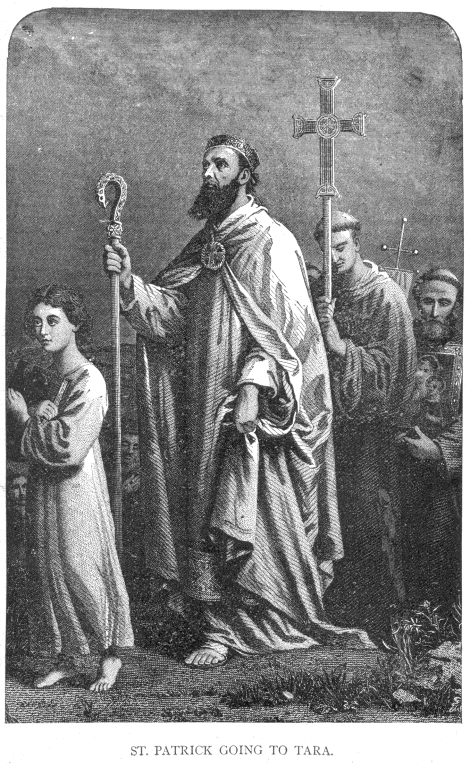Note from Joe: My first encounter with the following poem was in the book
A Swiftly Tilting Planet by Madeleine L’Engle.
It is the third book in her Time Quintet. Although this poem is cleverly woven into
her book, she did not write it. It was originally written in Gaelic many centuries ago by an unknown poet.
According to the book "Lyra Celtica: An Anthology of Representative Celtic Poetry"
(1896; Elizabeth Sharp, ed.), its earliest known
publication was in "The Book of Hymns" in the 11th century, in which it is
called "The Faedh Fiada; or, The Cry of the Deer". This English translation was
by Charles Mangan. My eternal thanks go to Madeleine L’Engle
for her delightful and thought-provoking novels which gave me no end of pleasure as a child.
I still hear the Old Music in my heart today, and hope to sing it forever.
Tara, also known as Hill of Tara, is a village in northern Ireland, northwest of Dublin. It was the
traditional residence of the ancient Irish kings. It is said that Saint Patrick spoke
a similar prayer there. If you’d like to use it as a prayer in time of great distress, replace “At Tara”
with either your location (“In Moria in this fateful hour...”) or with the name of the person
who needs help (“With Frodo in this fateful hour...”). If you say it with conviction and faith,
the Echthroi will flee,
and the Balrog shall not pass.
